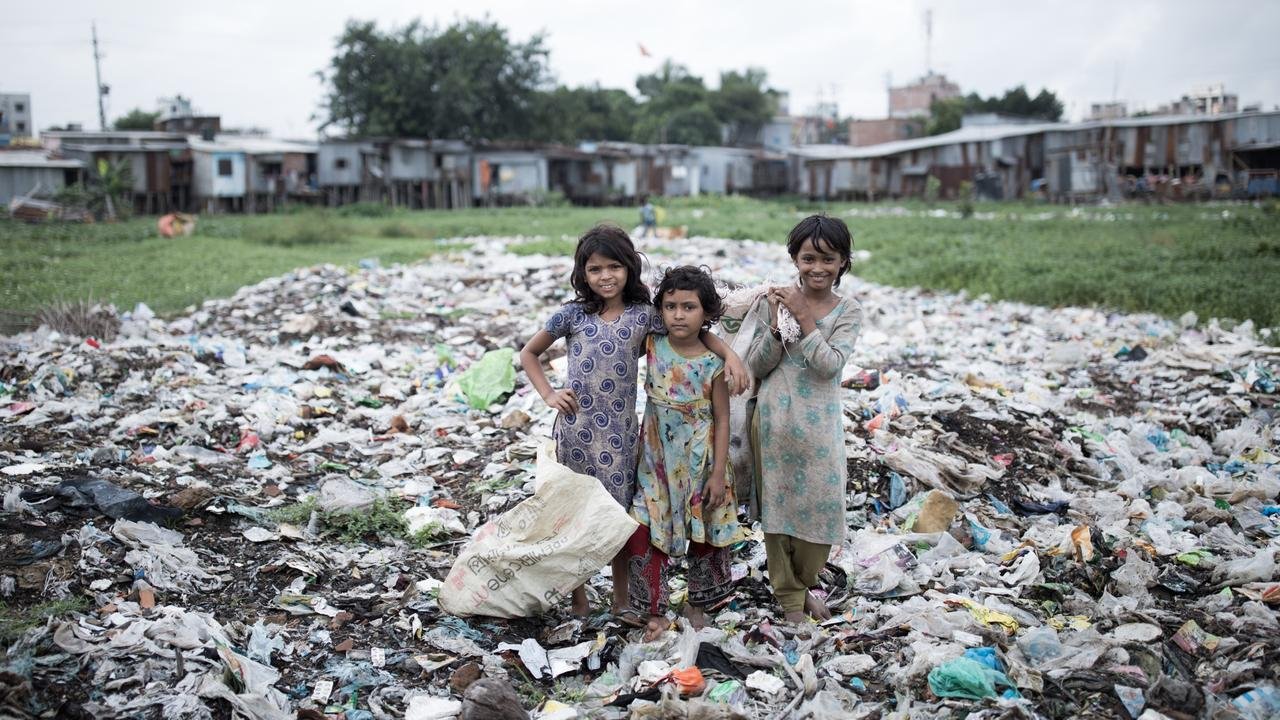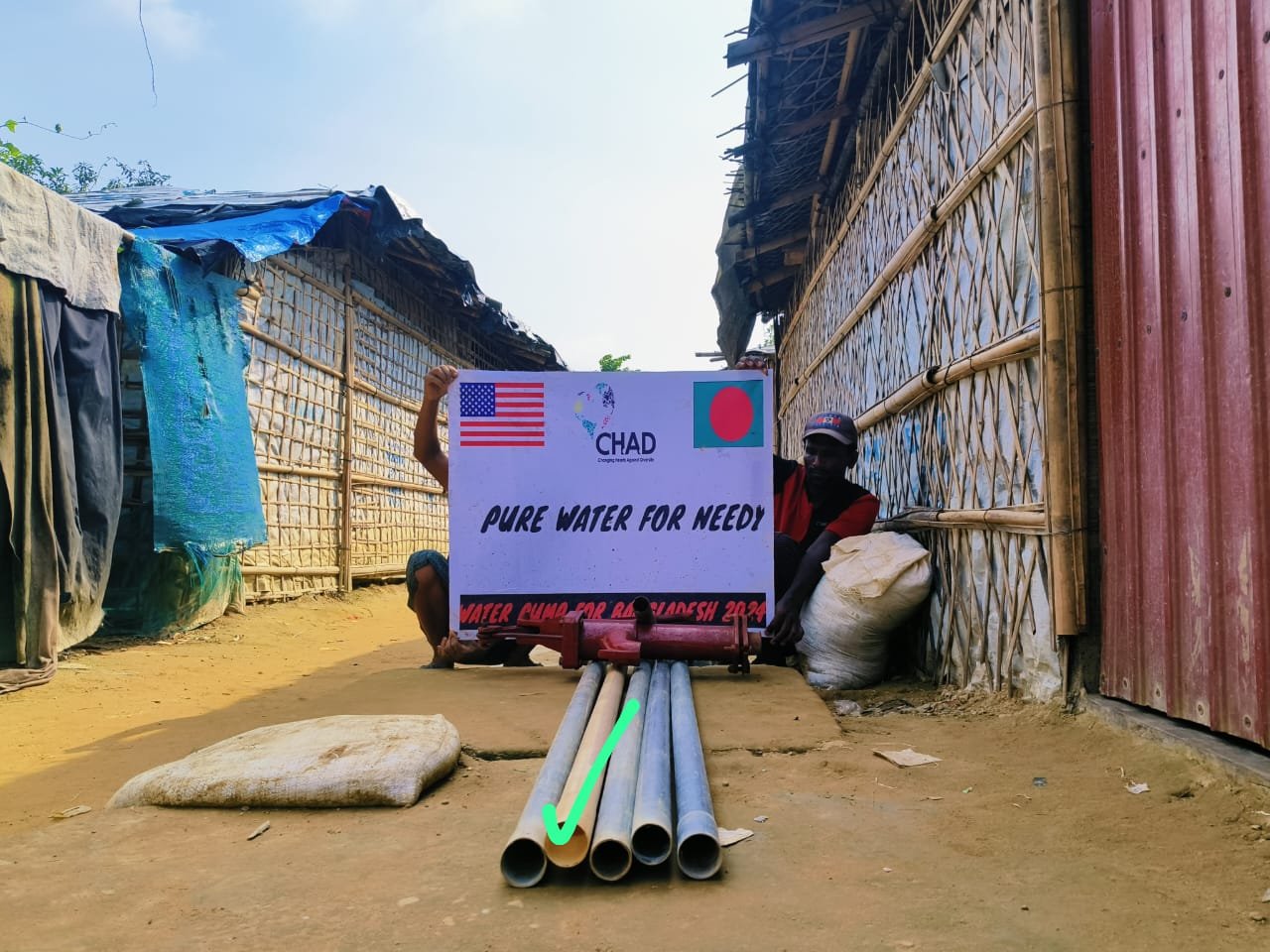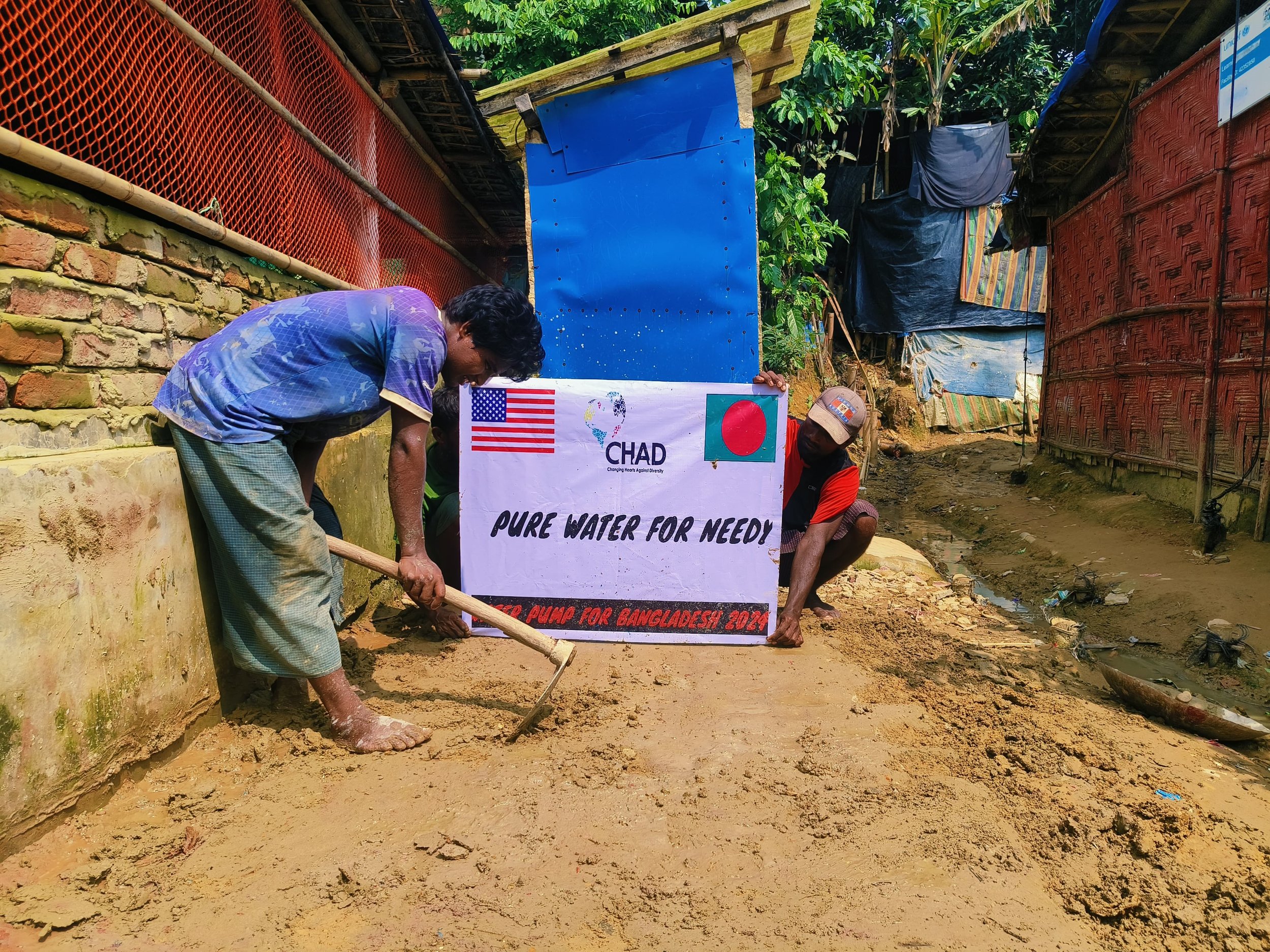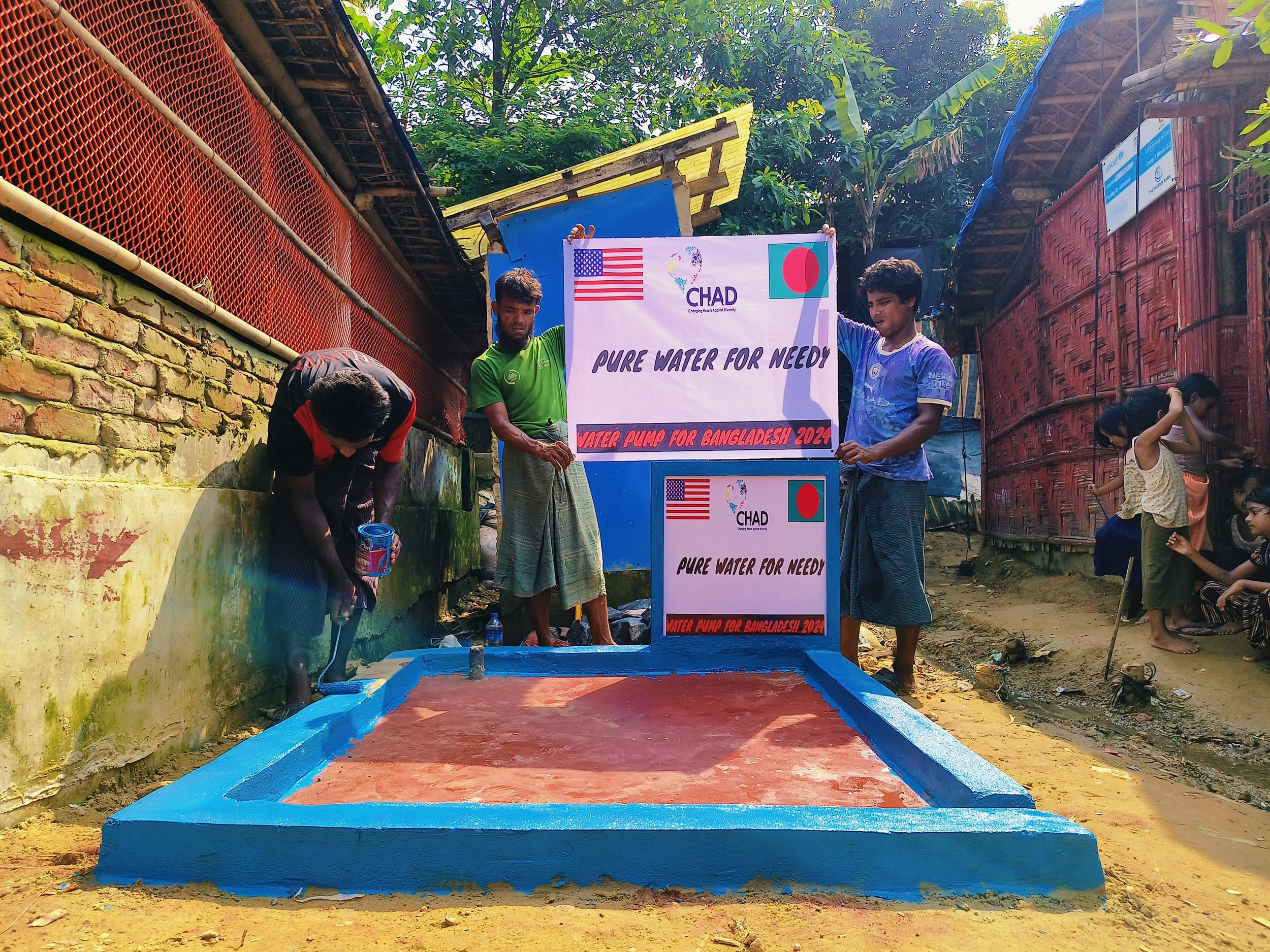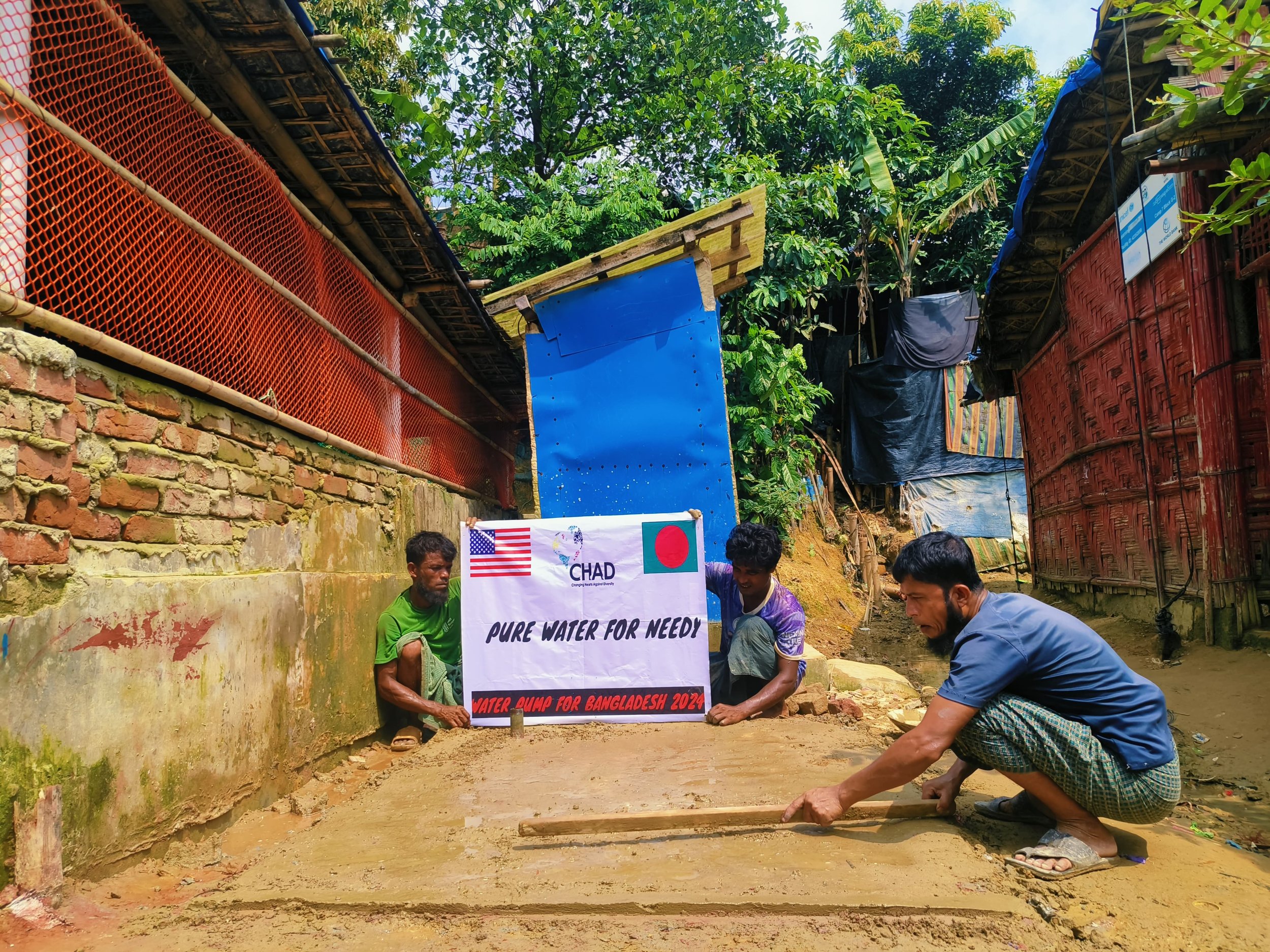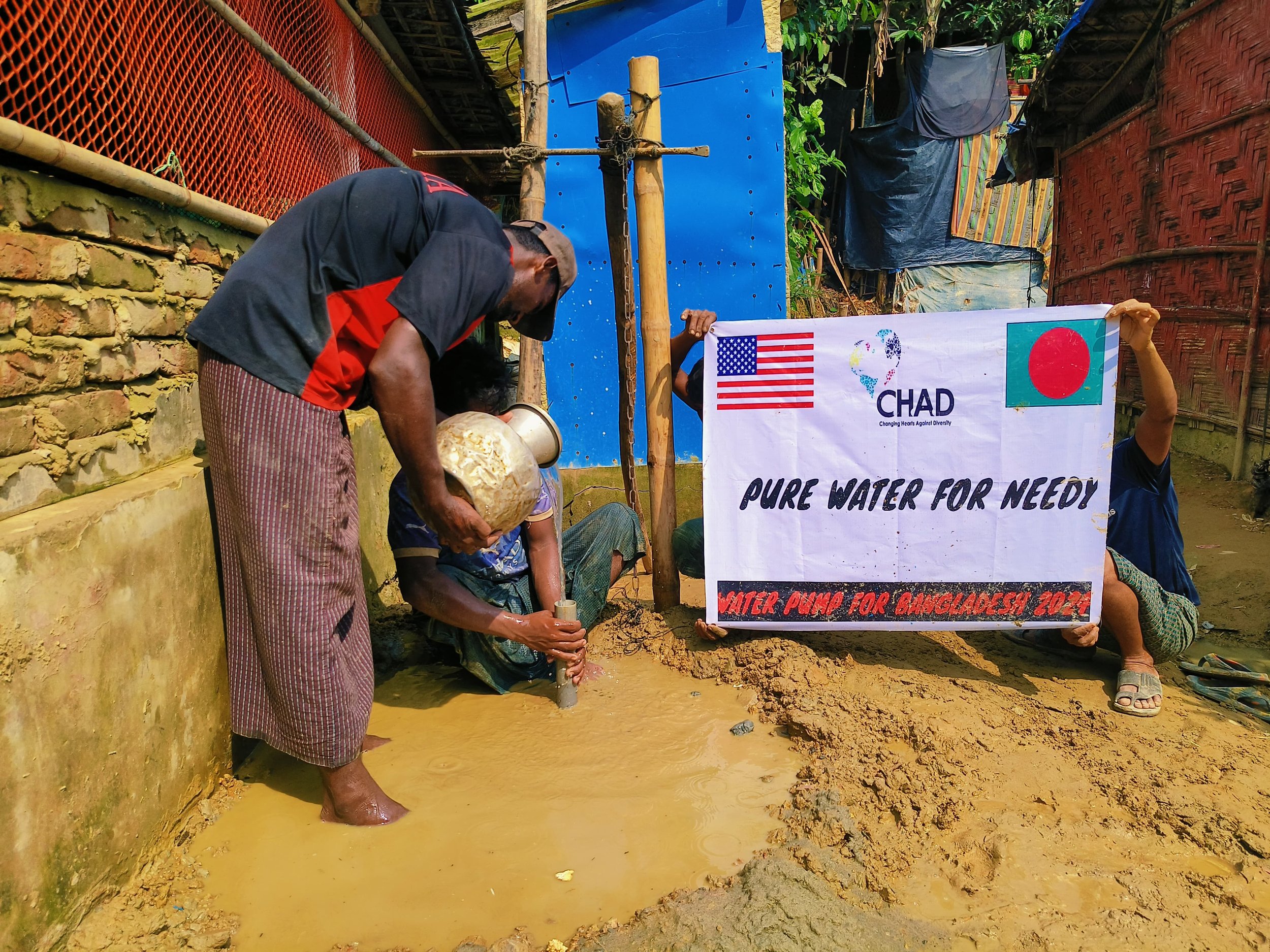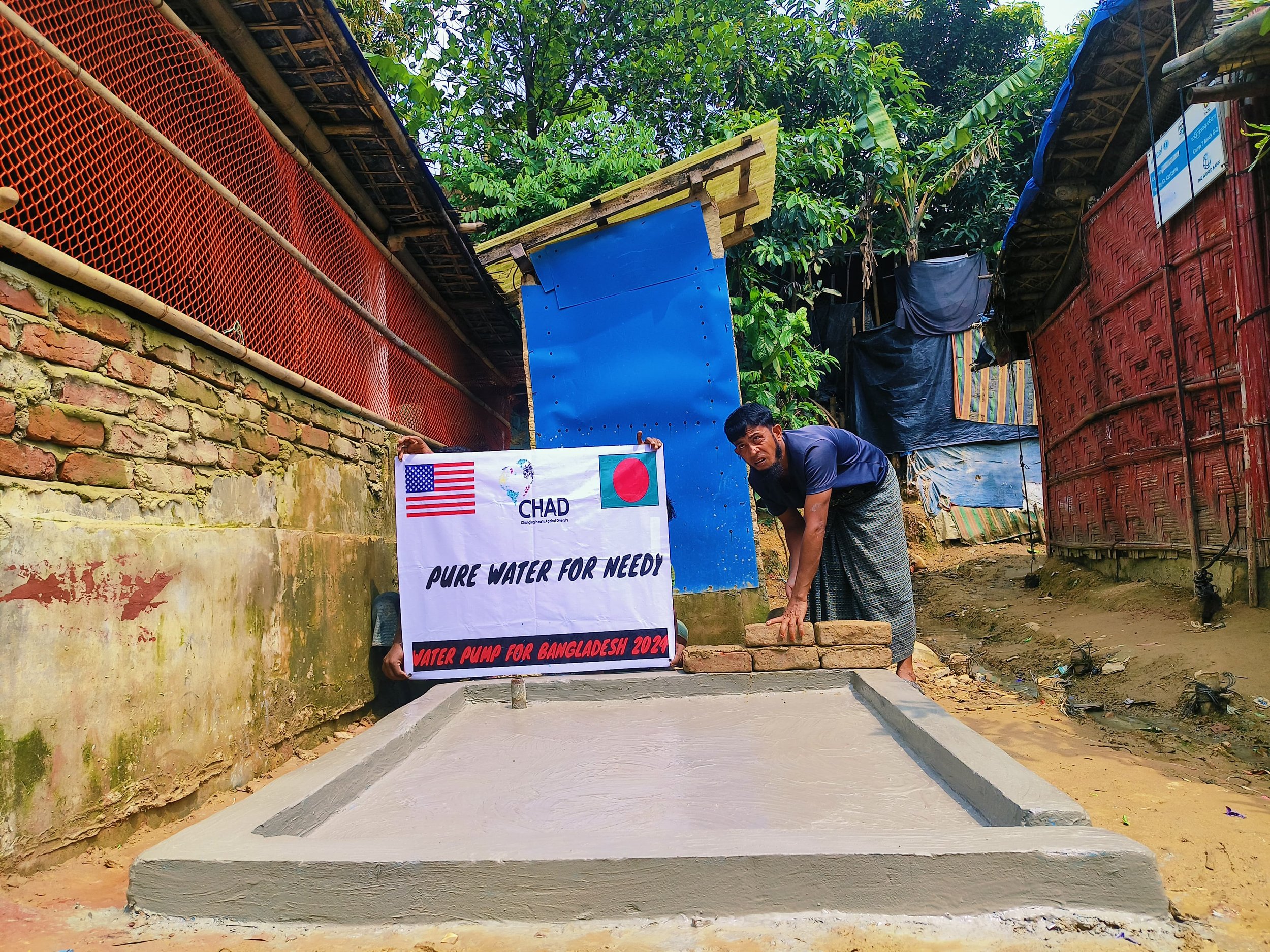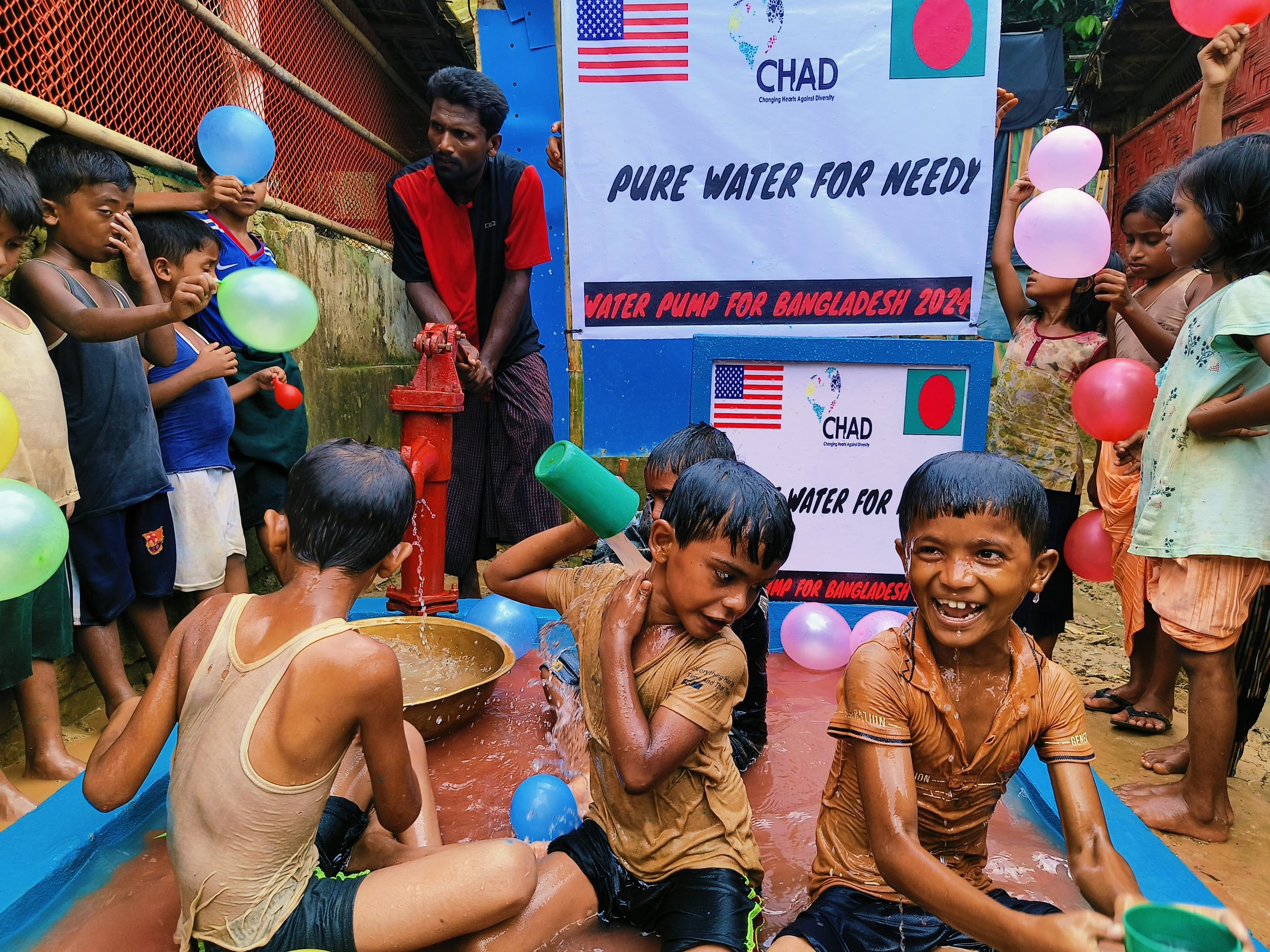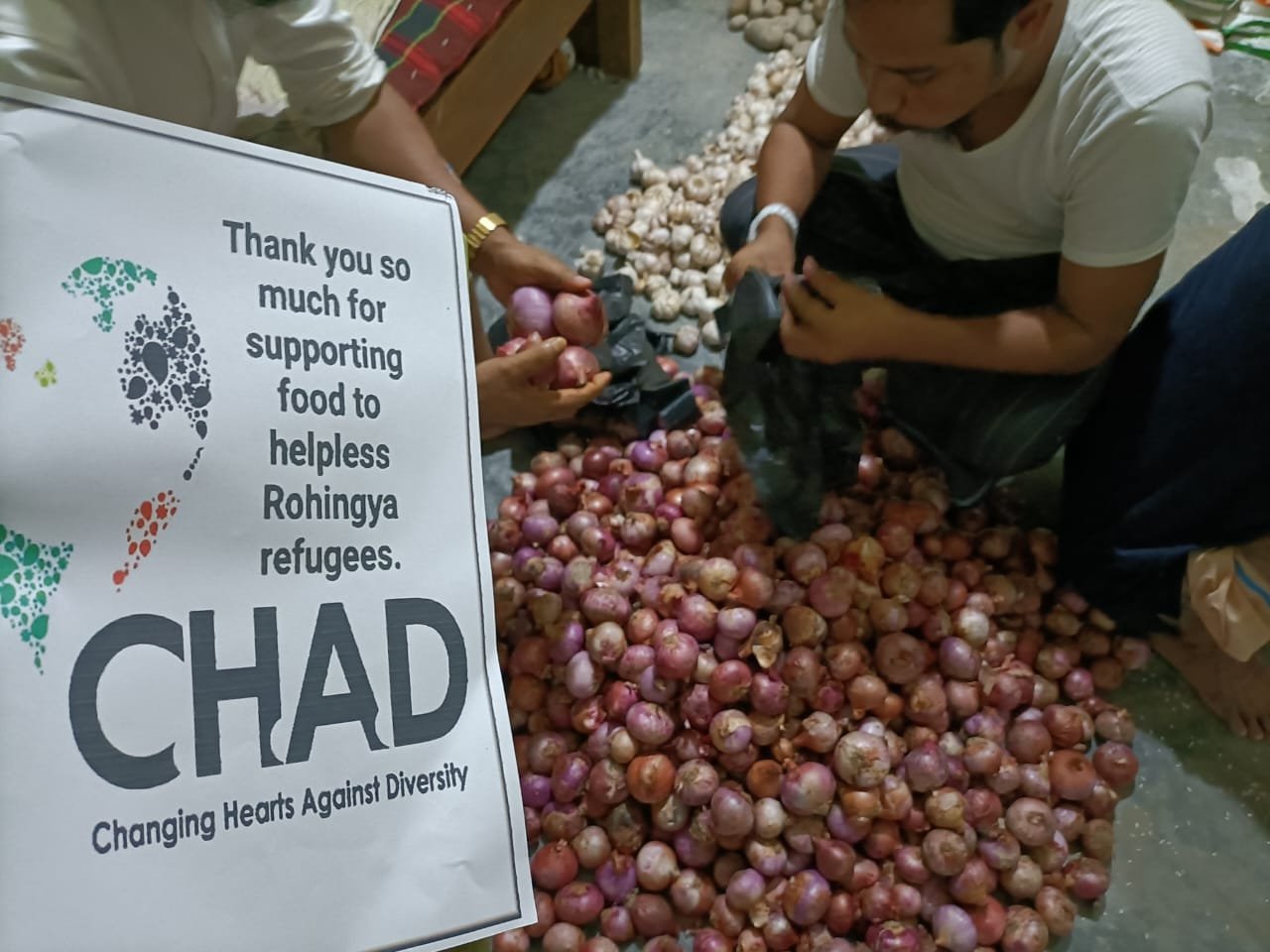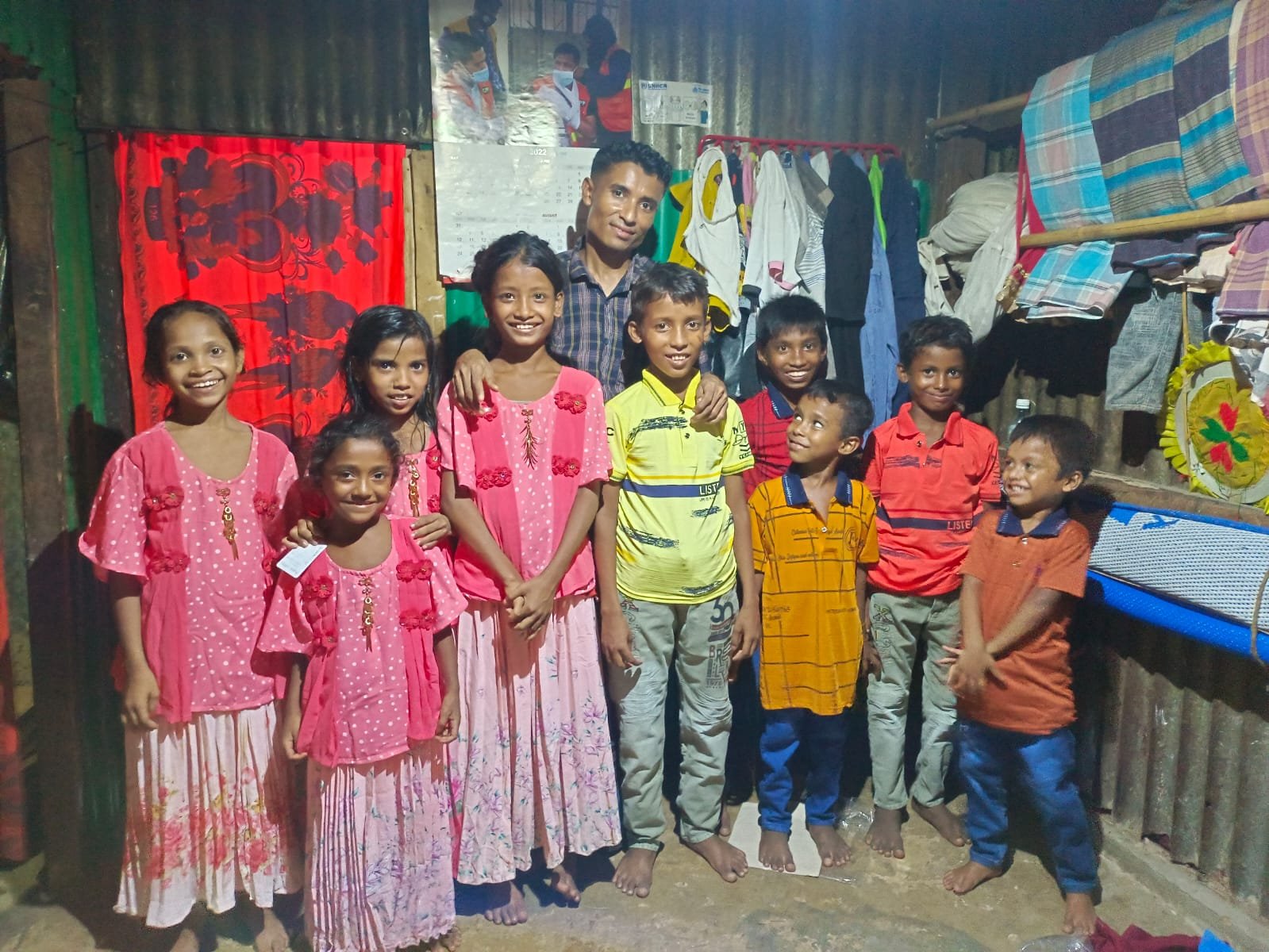Food and Water Crisis in Bangladesh
I had the opportunity to watch the captivating series Tales by Light - NetFlix. One particular episode focused on the remarkable Simon Lister Photography and Orlando Bloom, who skillfully captured the lives of children in Bangladesh. Witnessing the incredible work showcased in the series, I immediately knew that this would be my next fundraising project for the Changing Hearts Against Diversity Foundation.
Intrigued by the stories behind the photographs, I delved into researching Ukhia, Cox’s Bazar, Bangladesh—a place predominantly inhabited by Rohingya refugees who sought shelter after fleeing ethnic and religious persecution in Myanmar. I discovered that it is one of the two government-run refugee camps in Cox’s Bazar. During my research, I came across a dedicated humanitarian aid worker who resides within the camp named Abdul. This individual has been working closely with Simon, striving to provide sustainable resources such as education, clothing, clean water, infrastructure, and food to those in need.
Reflecting on the dire circumstances faced by the Rohingya refugees, I became inspired to initiate a collaboration with the humanitarian aid worker for various future projects in this region. The magnitude of the situation struck me profoundly as over a million refugees fled Myanmar in 2017 with nothing but the clothes on their backs.
“Be the change you wish to see in the world.”-Rahul Gandhi
In the autumn of 2017, some 700,000 Rohingya fled a wave of violence and persecution in Myanmar. They fled to Cox's Bazar District in neighboring Bangladesh. Here they settled in an area where many Rohingya had sought refuge before them. Many brought only the clothes they wore when their homes and villages were attacked, destroyed, and set on fire. Despite being one of the world's most densely populated countries, Bangladesh today hosts the world's largest - and still growing - refugee settlement. Here, more than 30 camps have now become home to 920,000 Rohingya. It has been five years since the last mass exodus from Myanmar. But the refugee Rohingya still face no prospect of returning home.
The Rohingya are an ethnic minority in Myanmar. They are predominantly Muslim, while the majority in the country are Buddhist. The Rohingya are mainly from Rakhine State in northern Myanmar. But a wave of ethnic violence has driven hundreds of thousands of Rohingya to flee to neighboring Bangladesh, where they primarily live in the Cox's Bazar District.
How the Rohingya crisis started
In 1982, Myanmar's Rohingya were denied citizenship, effectively rendering them stateless. Since then, the group has been repeatedly subjected to violence and persecution and denied basic rights. The largest exodus of Rohingya from Myanmar began in the late summer of 2017. Here, more than 700,000 Rohingya fled to neighboring Bangladesh in a matter of months.
More than 920,000 Rohingya live in the Cox's Bazar District of Bangladesh today. The large influx of refugees means that some 444,000 local residents of the host community also need humanitarian assistance. At the same time, the COVID-19 pandemic has increased the need for support among an additional 509,000 local residents in the area. According to the UN, some 1.8 million people in the Cox's Bazar District are thus in need of humanitarian assistance.
Current Projects:
Deep Water Pump- $200
Food- $500 (Feeds 30 people; this includes rice, oil, sugar, potatoes, flour, salt, and onions)
Clothes-$100 (Clothes 10 Children)
Education- $50
Cows- $800-$1000
Chickens- $10
Education=Power & Life Building Tool
In Bangladesh, the literacy rate of women is lower compared to men. As a result, the government has taken measures to increase the literacy rate among women. However, these efforts do not quite reach rural areas, especially the hilly regions of Chittagong Hill Tracts due to lack of communication infrastructure. Non-government organizations are also working towards balancing the education rates between genders by involving communities. I would like to urge donors to support women's education development by donating $50 to provide deprived female children with better opportunities and a chance to build a better life. Let us stand with vulnerable female students and support educational development initiatives.
“We know only too well that what we are doing is nothing more than a drop in the ocean. But if the drop were not there, the ocean would be missing something.
Mother Teresa
Funded Clothing
Ten Children in the Rohingya Refugee Camp
Funded Food
30 People in the Rohingya Refugee Camp
Year
June 2023


